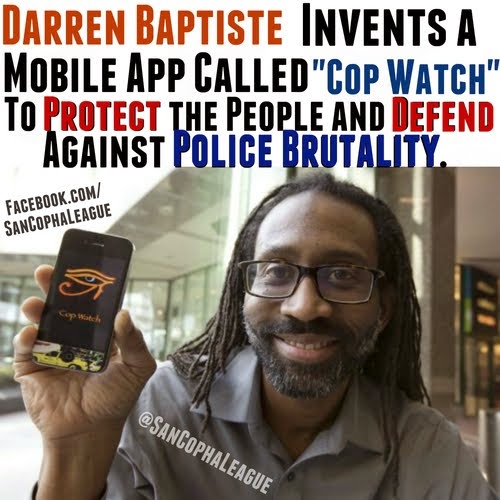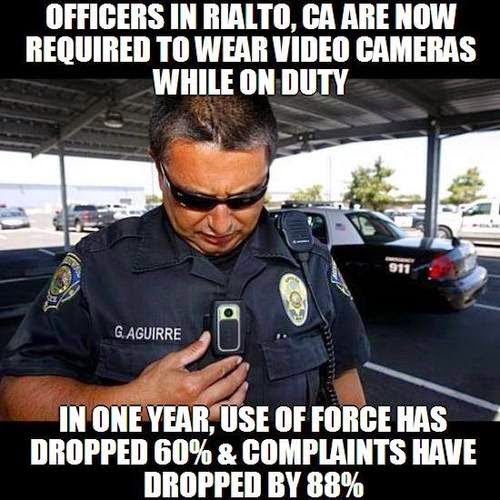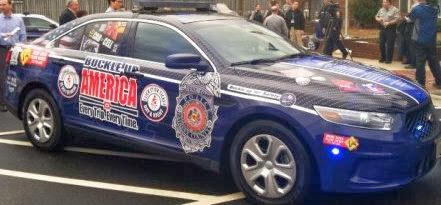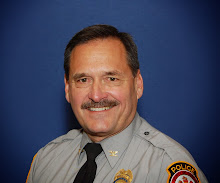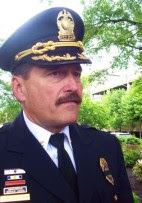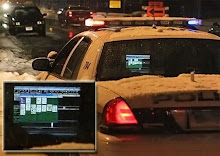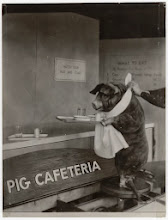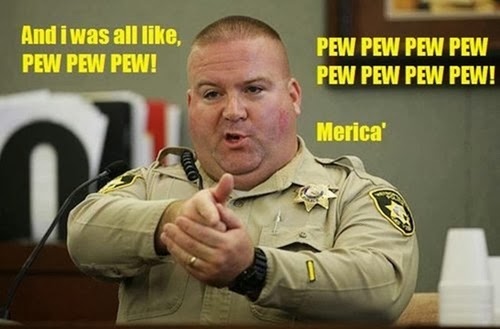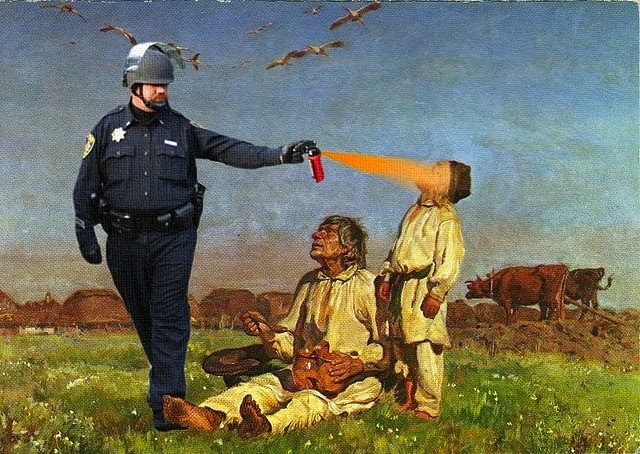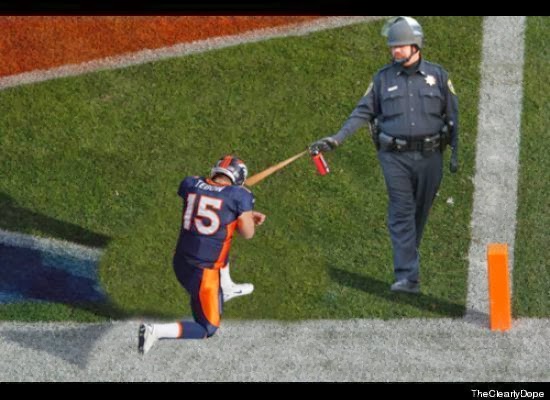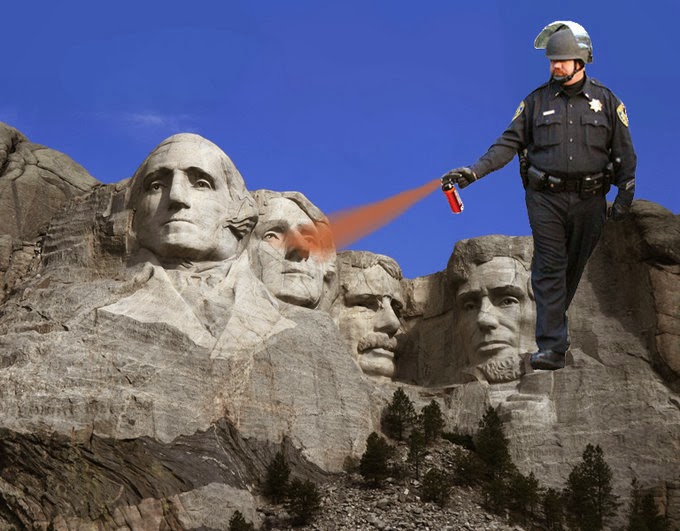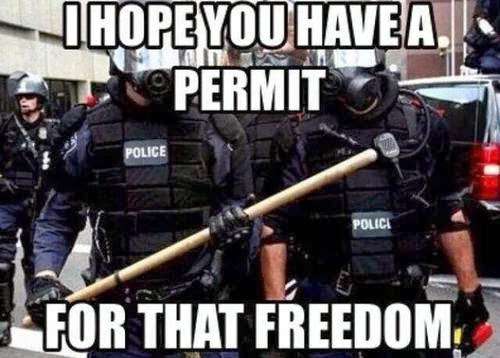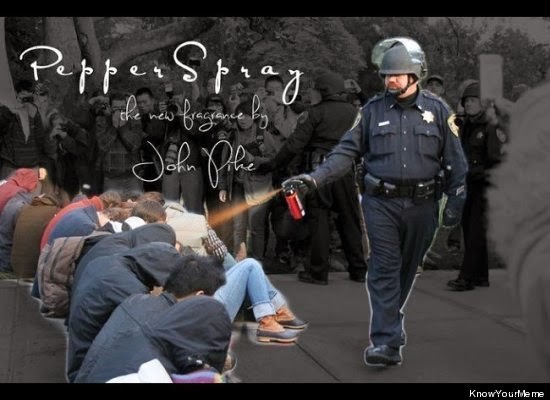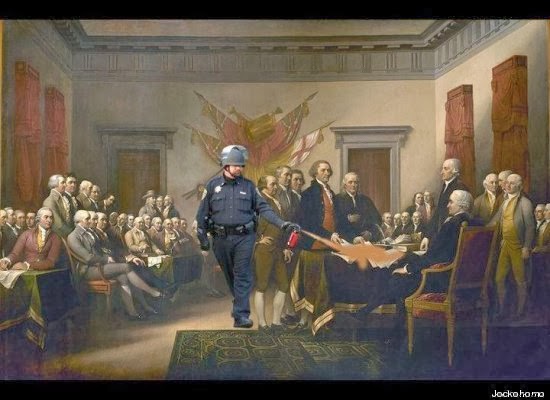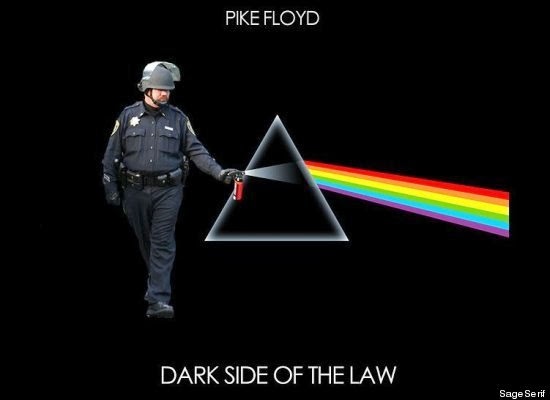Here's what will happen by the end of the year: Sharon Bulova, the cops front man will figure out a way to kill this program
Fairfax launches pilot program for police body cameras, hires county executive
By Antonio Olivo November 21 at 5:47 PM
Police body cameras will make their debut in two Fairfax County districts over the next three months, the latest step in the county’s response to the fatal 2013 shooting of an unarmed man outside his home.
The $685,000 pilot program was approved by unanimous vote at a Fairfax County Board of Supervisors meeting that also included the announcement of a new executive to run Virginia’s most populous jurisdiction.
Bryan J. Hill, who is county administrato rfor James City County, Va., will become Fairfax County executive in January. Hill, 50, will take the $250,000-a-year post vacated by Edward L. Long Jr., who retired this year. Kirk W. Kincannon, the executive director of the county park authority, has been filling the role on an interim basis.
The body camera pilot program will equip randomly selected police officers in the Mount Vernon and Mason police districts with 230 body cameras. Researchers from American University will analyze the footage from those cameras to determine their effects on use-of-force incidents, the number of abuse complaints and how officers go about their jobs.
“The cameras are important to understand how we get into these situations,” Police Chief Edwin C. Roessler Jr. said.
This year, the county launched two civilian bodies to monitor investigations into allegations of excessive force, harassment and other misconduct. In all, Fairfax is pursuing $35 million in police reforms as a result of the John Geer shooting.
Roessler said use-of-force incidents stem in most cases from attacks on police officers, which he said the body cameras will be able to confirm.
The use of police body cameras has been controversial in some communities, including Fairfax, mainly due to privacy concerns over accidentally filming people who aren’t suspected of a crime.
Fairfax officials said they’ve researched what they legally can and can’t do under the program.
Anyone in a public area can be filmed. A police officer will also be allowed to film someone in their home as long as the police have the legal authority to be there.
Anyone who isn’t suspected of a crime and has a reasonable expectation of privacy may decline to be recorded, unless the officer is there as part of a criminal investigation or an arrest, county police officials said.
An officer may turn on the camera any time use of force is initiated or anticipated, police said.
The county board reserved the option of extending the pilot program another three months if officials believe not enough data was collected to decide whether to permanently equip the county’s police force of about 1,400 officers with body cameras.
“We have a population of over 1 million people, so when we’re trying something, we’re trying something big,” said the board’s chairman, Sharon Bulova (D). “If it fails, it can be a major, expensive failure.”
Outrage As Fairfax County Police Use AR-15s To Kill Deer: Report
Locals are worried
that using such weapons instead of bows or shotguns puts civilians at risk.
By Dan
Taylor, Patch Staff | Nov
10, 2017 1:52 pm ET
FAIRFAX
COUNTY, VA -- Some members of the community are upset after hearing that
Fairfax County police will be killing deer this season using AR-15 rifles,
according to a report.
NBC Washington reports that Fairfax
County Police will use AR-15s to help control the deer population in the
Alexandria area starting in mid-November and continuing until mid-March.
"Even
though the police say they shoot down as it's supposed to be safe, we just feel
that you can't ever rule out weapons malfunction or human error," resident
Nancy Schoenig said, according to the report.
Police
say it's necessary for them to cull the deer population using AR-15s because it
has gotten out of control, and AR-15s are the most accurate and humane way to
do it.
AR-15s
have been used in numerous mass shootings in recent years. The issue has
sparked a big debate on NBC Washington's Facebook page, with some
saying that AR-15s should be used and other saying it's much ado about nothing.
"Use
a crossbow on the deer," commented John Perman. "Then butcher it and
sell the meat. I'd rather people use a bow and arrow in a highly populated
area. Also in more rural areas, only single shot rifles should be allowed. No
semi automatic or automatic with 15 to 20 rounds."
Dian
Rosen-Cornwell said that police do this at Frying Pan Park in Herndon as well,
and the meat is donated to local food pantries. "I'm much more concerned
about the random angry white guy with an AR-15 than trained police shooting a
deer. Perspective people," she said.
Bill
Johnson said that "any knowledgeable hunter" would say that an AR-15
is a "stupid choice of weapon, and will endanger civilian lives." He
recommended a shotgun instead.
Phil
Dee called concern about AR-15s "hysteria."
"As
another poster mentioned, an AR-15 is NOT an automatic rifle," he wrote.
"It's not going to fire like the Vegas shooter fired unless it's equipped
with a bump stock. The police departments aren't going to go out hunting for
deer using bump stocks, that's just absurd."
ACLU Asks Virginia Supreme Court to Block Use of Automated License Plate Readers
RICHMOND, Va. (CN) – Attorneys with the American Civil Liberties
Union on Thursday asked the Virginia Supreme Court to stop the state from using
automated license plate readers which they contend impermissibly surveil
innocent drivers.
The ACLU is representing Harrison Neal, a resident of Fairfax
County.
The Fairfax County Police Department has repeatedly argued there
are no civil rights issues associated with the use of the technology because
the database for the automated readers is a “closed system” and not “married
“to other networks that would allow for a comparison with other data on an
individual.
But Neal’s
attorneys said connecting
the dots through the systems is an easy matter for law enforcement and so the
passive collection of data is a violation of Virginia motorists’ Fourth
Amendment rights.
Automated license plate readers have been in use for decades,
The small camera systems are mounted on cars or in stationary positions, and
when turned on, collect high resolution images of vehicles and their licenses
plates.
A computer algorithm converts the license plate numbers into
code, and combines them with timestamps and GPS locations tags. The data is
then searchable through a database.
The ACLU says that database allows law enforcement to
cross-reference the data with DMV and other records to determine whether the
driver is a law-abiding citizen or someone wanted in connection with an
unlawful activity.
In a November 2016 ruling in the
case, Fairfax County Circuit Judge Robert Smith said “the database did not
contain Neal’s name, address, date of birth or any information related to the
registered owner of the vehicle associated with the … license plate number,”
and denied Neal’s request for summary judgment.
“The only information stored as to the … license plate was the
photographs, and the date, time and GPS coordinates of the locations where the
photos were captured,” Judge Smith said.
Smith said based on these facts, the collection of data with the
automated readers does not violate the law.
On Thursday, the ACLU said they disagree.
“Fairfax County has set its own rules,” said ACLU lawyer Ed
Rosenthal.
According to Rosenthal, Neal’s “personal data” was discovered on
the Fairfax County Police Department’s servers after he filed a Freedom of
Information Act request in 2015.
There was no reason for Neal’s data to be there because he was
not the subject of a criminal investigation, Rosenthal said.
State Supreme Court
Justice Stephen McCullough appeared to agree with this assertion, although he
did take issue with aspects of an opinion filed
by former state Attorney General Ken Cucinelli, which the ACLU pointed to in
support of its position.
“… Data collected by an LPR may be classified as ‘criminal
intelligence information; and thereby exempted from the Data Act’s coverage
only if the data is … evaluated and determined to be relevant to criminal
activity,” Cucinelli wrote in 2013.
McCullough said Cucinelli’s interpretation was too broad in its
use of data “relating to ongoing investigations.”
Chief Justice Donald Lemons brought Monday’s terrorist attack in
New York City into the discussion, saying that passive collection of driver
information could be helpful in an investigation after a crime has been
committed.
But Lemons wondered whether there should be limits to how long
the collected data can be held.
“How long is long enough, how long is too long?” he asked
Rosenthal.
The attorney said information not directly linked to a criminal
investigation should not be retained at all.
Justice D. Arthur Kelsey then wondered if warnings of attacks or
crimes could warrant passive collection. He asked if it would be appropriate
for New York city police to turn on automated readers if the U.S. Dept. of
Homeland Security warned that an attack was imminent.
Rosenthal seemed to concede data collection was appropriate in
this scenario. He pressed the words of the statute which says “information
shall not be collected unless the need for it has been clearly established in
advance,” calling that “particularized need” good enough.
But Rosenthal persisted, arguing that at its core, the case is
about the database itself, and making sure the data is protected from being
misused.
Fairfax County ‘s Assistant County Attorney Kim Baucom countered
by returning the lower court’s decision, saying the law is narrow in its
definition of “personal information,” and that Judge Smith was correct in
concluding the data collection does not violate that law.
Baucom said Fairfax County Police officers, while able to access
the database, their ability to compare the information with other municipal
databases is very limited.
For instance, the officers can’t determine whether the owner of
the vehicle was actually driving it when the license plate image was captured.
The court did not indicate when it will rule on the case.
On the illegal arrest of a reporter
BEWARE, YE
foul-mouthed citizens of Fairfax County: The sensibilities of your police force
are so delicate, their taste in language so virtuous, their ears so unsullied
by rude speech that they regard the utterance of profanity as justification for
a half-dozen of them to throw you to the ground, crush your head to the
pavement with their knees, wrestle you into submission and arrest you.
A Fairfax ordinance
seems to give the police carte blanche in this regard, proclaiming that “if any
person profanely curse or swear or be drunk in public, he shall be deemed
guilty of a Class 4 misdemeanor.”
The trouble is, the
ordinance, like the police policy, is flatly unconstitutional, as the Supreme
Court and lower tribunals have ruled repeatedly. And the Fairfax County police
chief, Edwin C. Roessler Jr., only encouraged police to overreact and use
gratuitous violence by offering an unqualified defense of some officers’ recent
actions, even as the police opened an internal investigation of the incident
that prompted the chief’s remarks.
The incident in
question involved Mike Stark, a journalist who, while covering a political
rally in Annandale last weekend, was confronted by an officer who told him to
get on the sidewalk. (He was barely off it.) In a video of the incident, Mr.
Stark, who works for Shareblue, a left-leaning website, is seen protesting:
“I’m a f---ing reporter doing my job.”
Another officer
informed him that if he swears again, “you’re going to jail.” Mr. Stark
replied, “F--- this,” whereupon the police officer pounced, threw him to the
ground, and, joined by reinforcements pinning him to the ground, handcuffed and
arrested him. Ultimately, Mr. Stark was charged with disorderly conduct and
avoiding arrest — not with swearing.
Mr. Stark may not
have been wise in his dealing with the police. It’s equally true that the
officers’ response was unprofessional, at the least. A citizen’s lack of social
polish or politesse does not justify the officers’ use of violence. There’s no
excuse for verbally abusing police officers, but in real life it happens
plenty, and if police officers can’t take foul language directed at or used
around them now and then, they’re in the wrong line of work. (The same goes for
journalists.) At no time did Mr. Stark threaten the officers or anyone else.
Courts have been
clear that, as Justice John Marshall Harlan II wrote for the Supreme Court in
Cohen v. California, a free-speech case in 1971, “one man’s vulgarity is
another man’s lyric.” In that case, the court ruled that the First Amendment
protected an individual’s right to wear a jacket inscribed with the words “F---
the Draft.” And while the court has exempted “fighting words” from First
Amendment protections, those are generally considered language meant to incite
others to violence. Mr. Stark may have been irascible and ill-tempered, but he
was hardly trying to start a riot.
Fairfax County
police have opened an internal investigation of Mr. Stark’s arrest. That’s a
good thing. Mouthing off is not cause for arrest, let alone physical abuse by
police.
Context, as usual,
is everything.
I was targeted by
the police for special enforcement at the request of Ed Gillespie's campaign,
who I was there to cover. A campaign aide, seen in the video, asked the police
to keep me away from the candidate, who has been evading all reporters - not
just me - for many weeks now.
When the cop told
me to get out of the road, I got out of the road. When he told me I couldn't go
near the candidate, I told him he'd probably have to arrest me. Things
escalated quickly from there.
But there were
other people in the street and other people taking pics of Gillespie's bus. I
was singled out.
So this was not a
case of crowd control, or traffic management, or anything else. It was one
reporter being singled out and told by police he would be arrested if he tried
do his job because one candidate (a citizen like the rest of us) doesn't want
to answer questions from unapproved, pre-vetted press.
That made me angry,
and my language reflected that.
Is it legal to curse at police? Hell yeah.
BEWARE, YE foul-mouthed
citizens of Fairfax County: The sensibilities of your police force are so
delicate, their taste in language so virtuous, their ears so unsullied by rude
speech that they regard the utterance of profanity as justification for a
half-dozen of them to throw you to the ground, crush your head to the pavement
with their knees, wrestle you into submission and arrest you.
A
Fairfax ordinance seems to give the police carte blanche in this regard, proclaiming that “if any person profanely
curse or swear or be drunk in public, he shall be deemed guilty of a Class 4
misdemeanor.”
The trouble is, the
ordinance, like the police policy, is flatly unconstitutional, as the Supreme
Court and lower tribunals have ruled repeatedly. And the Fairfax County police
chief, Edwin C. Roessler Jr., only encouraged police to overreact and use
gratuitous violence by offering an unqualified defense of some officers’ recent
actions, even as the police opened an internal investigation of the incident
that prompted the chief’s remarks.
The incident in question involved Mike Stark,
a journalist who, while covering a political rally in Annandale last weekend,
was confronted by an officer who told him to get on the sidewalk. (He was
barely off it.) In a video of the incident, Mr. Stark, who
works for Shareblue, a left-leaning website, is seen protesting: “I’m a f---ing
reporter doing my job.”
Another officer informed
him that if he swears again, “you’re going to jail.” Mr. Stark replied, “F---
this,” whereupon the police officer pounced, threw him to the ground, and,
joined by reinforcements pinning him to the ground, handcuffed and arrested
him. Ultimately, Mr. Stark was charged with disorderly conduct and avoiding
arrest — not with swearing.
Mr. Stark may not have
been wise in his dealing with the police. It’s equally true that the officers’
response was unprofessional, at the least. A citizen’s lack of social polish or
politesse does not justify the officers’ use of violence. There’s no excuse for
verbally abusing police officers, but in real life it happens plenty, and if
police officers can’t take foul language directed at or used around them now
and then, they’re in the wrong line of work. (The same goes for journalists.) At
no time did Mr. Stark
threaten the officers or anyone else.
Courts
have been clear that, as Justice John Marshall Harlan II wrote for the Supreme Court in Cohen
v. California, a free-speech case in 1971, “one man’s vulgarity is another
man’s lyric.” In that case, the court ruled that the First Amendment protected
an individual’s right to wear a jacket inscribed with the words “F--- the
Draft.” And while the court has exempted “fighting words” from First Amendment
protections, those are generally considered language meant to incite others to
violence. Mr. Stark may have been irascible and ill-tempered, but he was hardly
trying to start a riot.
Fairfax County police
have opened an internal investigation of Mr. Stark’s arrest. That’s a good
thing. Mouthing off is not cause for arrest, let alone physical abuse by
police.
Video shows Fairfax County Police roughing up a reporter doing his job
Fairfax County police have opened
an internal investigation after a reporter from a was taken to the ground and
arrested Saturday following an argument with police officers as he was
attempting to cover Virginia Republican gubernatorial candidate Ed Gillespie.
During the incident, part of
which was captured on video, Fairfax County police officers could be seen
arguing with Shareblue Media’s Mike Stark before the confrontation grew
physical and he was arrested at a parade in Annandale, Va.
Stark said Tuesday that police
improperly handled the situation which began when a police officer asked him to
stay away from a van carrying Gillespie as the parade was about to begin, Stark
wrote in an email to The Washington Post.
Stark said he told the officer
that he was a reporter and that he would be covering Gillespie, who is squaring
off against Democratic nominee Ralph Northam in a race that has gained national
attention.
In a portion captured on video
that was filmed by someone other than Stark, Stark is heard to say “I’m just a reporter
doing my job,”
“If you curse again, you will go
to jail,” a second officer later tells Stark.
The first officer then turns
Stark around in an apparent effort to handcuff him and pushes him up against a
fence. The two officers then struggle with Stark, before one pulls out Stark’s
leg and pushes him facedown onto the sidewalk.
The two officers pile on Stark,
who can be heard saying “Stop, I will give you my arm.” Stark is then swarmed
by three other officers who help pin him down and attempt to handcuff him.
Stark can be heard screaming, before he is eventually handcuffed.
One of the officers claims in the
video that Stark is being arrested for public swearing, but court records show
Stark was taken into custody for disorderly conduct and avoiding arrest.
Shareblue said he was released on a $3,000 bond.
“I think they were letting me
know who was boss,” Stark wrote in an email to The Post. “It was unnecessary,
unlawful and violent, but not brutal.”
Stark said he suffered superficial
wounds in the incident and refused medical treatment.
Subscribe to:
Posts (Atom)


